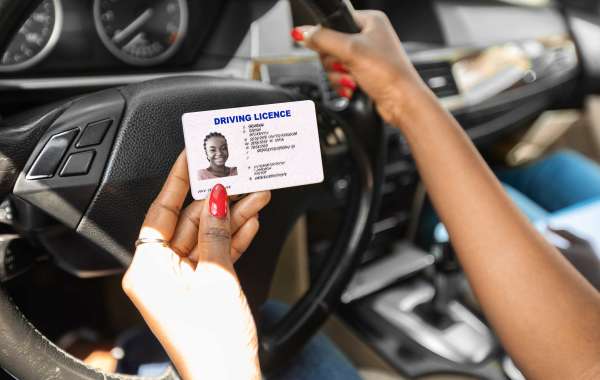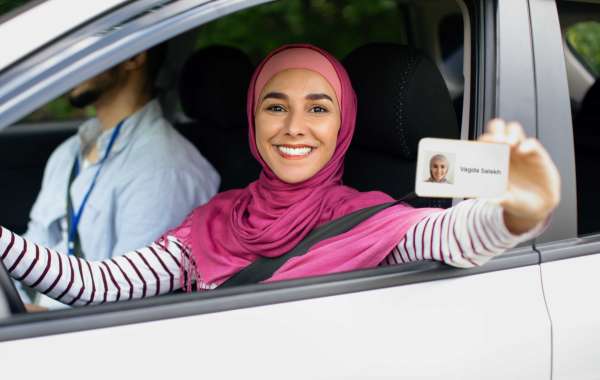Understanding the Process of Buying a Driver License: A Comprehensive Guide
In today's progressively mobile society, possessing a legitimate driver's license is often thought about a requirement. It provides individuals with the flexibility to browse their environments, gain access to task opportunities, and carry out day-to-day activities with ease. However, the idea of obtaining a driver's license can be bogged down in confusion and frustration, especially for those not familiar with the traditional application routes. Despite some misleading stories that recommend the option to simply "Buy Driver license" a driver's license, comprehending the legal paths and the implications of such decisions is important for anybody seeking to hit the road legally.
The Importance of a Valid Driver's License
A driver's license serves numerous vital functions:

Legal Identification: It serves as a government-issued identification file, accepted broadly for different purposes, including ballot and financial deals.
Proof of Driving Competence: The license suggests that the holder has actually passed the necessary driving examinations, demonstrating their ability to operate a vehicle securely.
Insurance Requirement: Most states require drivers to have a valid driver's license to protect car insurance coverage, which is obligatory for road usage.
Traffic Laws Compliance: A driver's license assures law enforcement that individuals have gone through the essential training to understand and abide by traffic laws.
Legal Pathways to Acquiring a Driver's License
In pursuit of driving opportunities, there are legitimate procedures one can follow to obtain a driver's license:
1. Learner's Permit:
- This is frequently the primary step for new drivers. A learner's authorization enables individuals to practice driving with a certified adult present.
- To acquire a student's license, candidates usually need to:
- Be of a specific age (generally 15 or 16).
- Pass a written knowledge test.
- Provide required documents, such as evidence of identity and residency.
2. Driver Education:
- Enrolling in a driver education course can offer necessary knowledge about roadway guidelines, safety procedures, and automobile operation.
- Conclusion of this course might be a prerequisite for obtaining a full driver's license in the majority of jurisdictions.
3. Road Test:
- After keeping the student's permit for a specified period and logging the required driving practice hours, people can arrange a road test.
- Passing this test is vital for receiving a complete, unrestricted driver's license.
4. Documentation:
- Applicants will normally need to supply:
- Identification documents (like a birth certificate or passport).
- Proof of house.
- Social Security number.
- Any previous driving records, if appropriate.
5. Costs:
- There are generally costs connected with the application process, which may vary by state.
The Risks of Buying a Driver License
While the notion of buying a driver's license might at first appear enticing, it is accompanied by significant threats and potential effects:
Legal Ramifications: Purchasing a driver's license outside of the recognized legal channels is illegal. People captured in this act might face severe penalties, consisting of fines or jail time.
Identity Theft Risks: Many deceptive offers on the internet involve identity theft, where individuals might inadvertently expose their individual information.
Insurance Issues: Without a genuine driver's license, obtaining auto insurance can be impossible. Driving without insurance can lead to substantial fines and liability for mishaps.
Increased Risk of Accidents: Without the requisite training and screening related to getting a valid license, untrained drivers position a danger to themselves and others on the roadway.
FAQs About Acquiring a Driver License
1. Can I drive without a driver's license?
No, driving without a valid driver's license is unlawful in the majority of jurisdictions. It can lead to fines and extra penalties.
2. For how long does it require to get a driver's license?
The timeline can differ depending upon the person's state of home, backlog at the Department of Motor Vehicles (DMV), and how quickly the candidate finishes the essential steps. Usually, the whole process may take a number of months from acquiring a student's license to scheduling and passing the road test.
3. Can I use my out-of-state driver's license in another state?
Yes, many states enable individuals to drive with an out-of-state license for a certain duration. However, if you become a homeowner of the new state, you will need to get that state's driver's license.
4. What should I do if my driver's license is lost or stolen?
You need to report the loss or theft to your local DMV and follow their process for acquiring a replacement. This frequently includes verifying your identity and paying a small cost.
5. Are there age limitations for acquiring a driver's license?
Yes, each state has minimum age requirements. Usually, people can begin the process with a learner's permit at age 15 or 16, however complete licenses are normally approved at 18 or 21.
Concluding Thoughts
While the allure of just buying a driver's license may exist in some circles, the involved dangers and legal implications make this alternative unadvisable. Instead, understanding and following the legitimate courses to getting a driver's license is the best and most accountable approach. Whether through a teenager's preliminary journey towards self-reliance or an adult looking for to regain driving opportunities, navigating the proper channels not only guarantees compliance with the law but also promotes accountable and educated drivers. Hence, prospective drivers are motivated to invest their effort and time into the legal process, ensuring a bright and lawful future spent on the open roadway.








